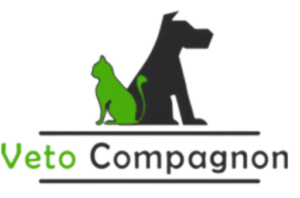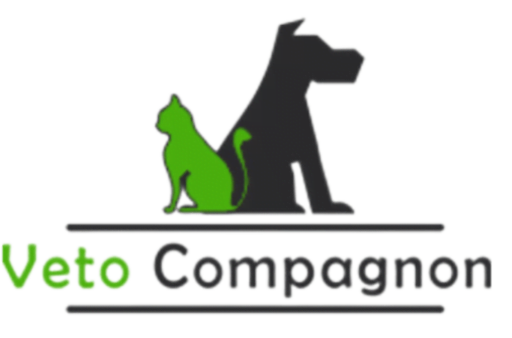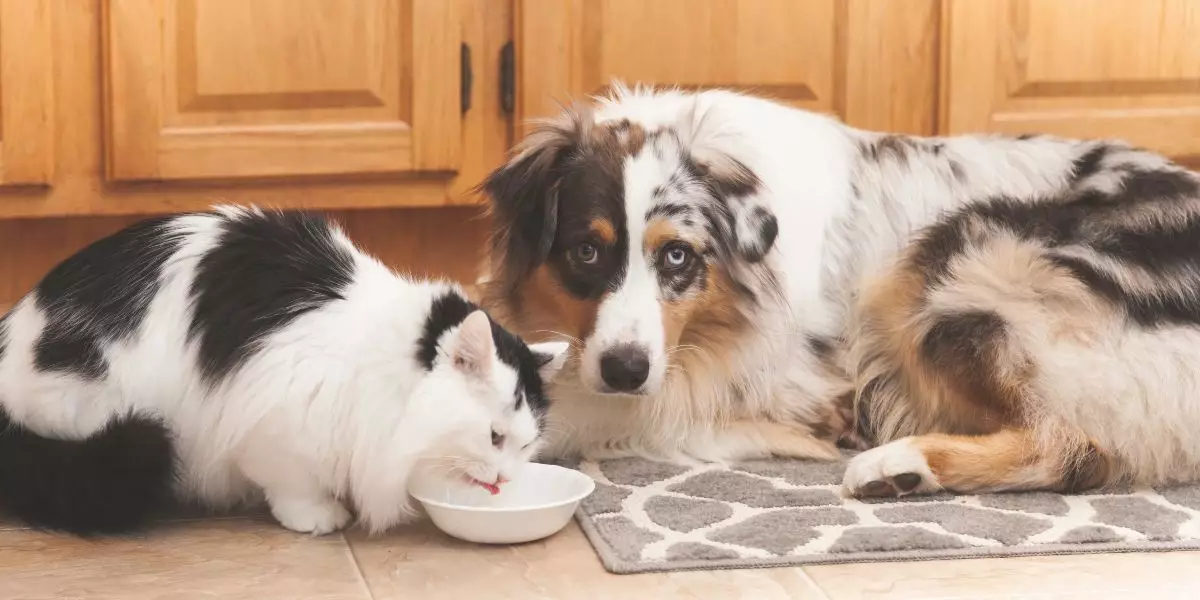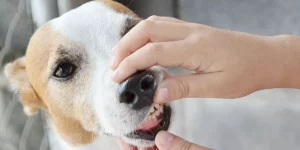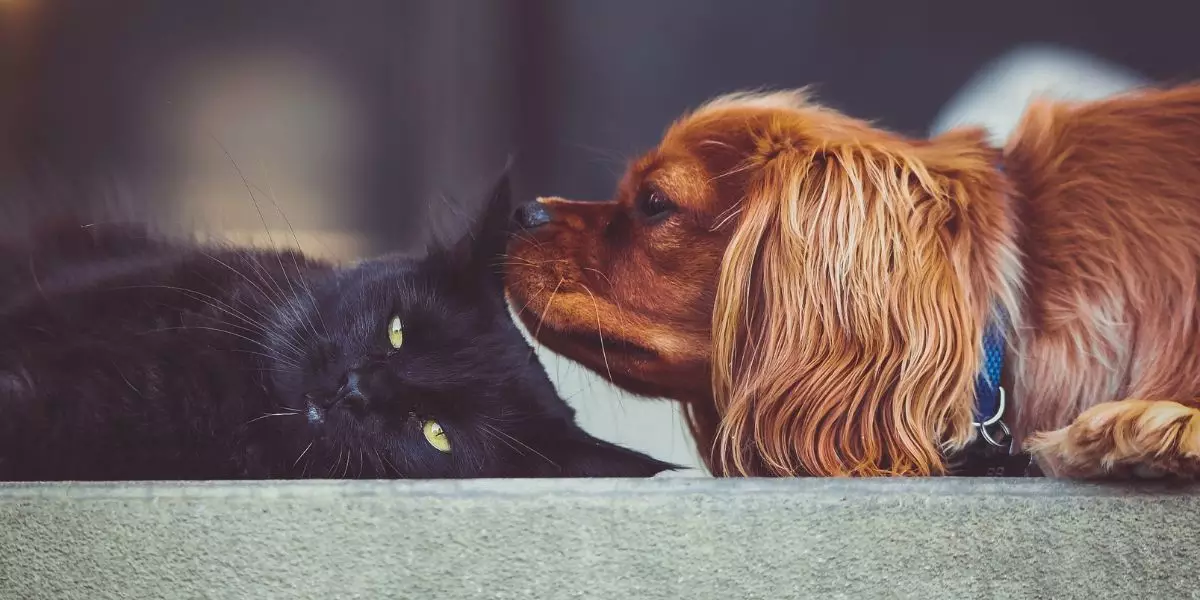The transit of dogs and cats is a crucial topic for their daily well-being. Regular transit is essential to avoid digestive disorders and maintain optimal health. However, sometimes the transit of our four-legged companions is disrupted for various reasons. Digestive disorders such as diarrhoea, constipation or gas can be a sign of disturbed transit and require special attention. What are the causes of these disturbances and how can they be addressed naturally? Let us discover together the solutions offered by nature to help regularize the transit of your pet.
Causes
Transit disturbances in dogs and cats can be caused by a variety of factors, such as:
• Feeding : an inadequate diet or a sudden change in diet can disrupt the animal's transit. Some foods can be difficult to digest and cause digestive disorders.
• Stress : can have an impact on animal transit and cause digestive disorders such as diarrhea or constipation.
• The intestinal parasites Some parasites, such as intestinal worms, may be responsible for the disruption of digestive function.
• Diseases Some diseases, such as colitis or hormonal problems, can cause transit problems. The diarrhoea, the constipation or gas may be the sign. If these disorders persist, it is important to consult with a veterinarian to determine the cause and implement appropriate treatment.
Solutions
The vegetable coal and probiotics are two natural solutions that can help regularize animal transit. Let us see in detail their origins, their benefits and their ways of use.
Plant coal
Plant charcoal is a product obtained by calcination of plant materials, such as wood, coconut shells or bark of some trees.
It has been used for thousands of years for its absorbent properties, especially in the field of medicine. In veterinary medicine, it is mainly used for help regularize animal transit and relieve digestive disorders.
Plant charcoal works by absorbing undesirable substances in the intestine, which may be useful in case of diarrhoea or intestinal ailments. It is important to follow the veterinarian's recommendations regarding the dose to be given to your animal, depending on its weight and size. Plant charcoal can also be used to prevent food change or stress in order to protect your animal's intestinal flora.
It is important to note that vegetable charcoal may have contraindications in some cases. It should not be used for constipation, as it tends to dry the stools. It may also interfere with the absorption of certain medicines, so it is important to observe a period of 2 hours between the taking of vegetable charcoal and that of any other medicine.
At Veto Companion, we offer vegetable charcoal 100g powder.
Probiotics
Probiotics are useful micro-organisms that make up the intestinal flora. In a healthy organism, the digestive tract is colonized by about 100,000 billion bacteria belonging to 400 different species. Between 30 and 40 species of these bacteria represent 99% of the flora that forms a stable ecosystem essential to maintaining good health.
They are mainly used to maintain a healthy intestinal flora and prevent digestive disorders. Probiotics are naturally found in certain fermented foods, such as yogurt or kefir, but can also be given as food supplements or foods enriched with probiotics.
Probiotics are composed of different species of bacteria, each having beneficial properties for the health of the organism. They can help strengthen the immune system, prevent infections and maintain a balanced intestinal flora. They are particularly useful in cases of digestive disorders, such as diarrhea, but can also be used in prevention to protect the intestinal flora of your animal.
The microbial flora is divided into three groups:
• The dominant flora Bifidobacteria: they belong to the normal intestinal flora and have good resistance to gastric juices. With age, the population decreases and their species vary.
• Subdominant flora These are lactic ferments capable of producing lactic acid by fermentation of certain sugars such as lactose.
• Contaminant flora, potentially pathogenic but theoretically absent.
An infection, disease, or deficiency of the immune system can unbalance this ecosystem, but it is probably the most virulent aggression.
Probiotics are recognized for their ability to preserve the balance or facilitate the return to balance of the flora. In fact, they contribute to curbing the development of undesirable or pathogenic bacteria by producing antimicrobial substances and adhering to the digestive tract, thereby limiting the implantation of pathogens.
In addition, the environment and living conditions of animals do not always ensure their full physiological development (stress, confinement, old age).
Therefore, Probiotics have several benefits:
• A very likely intervention in neutralizing toxic products to neutralize certain bacterial toxins;
• Ensure proper digestive hygiene by improving intestinal transit through action on constipation and preventing diarrhoea;
• An action on the body's natural defences by modulating the activity of the intestinal immune system. This would improve natural defences, which are very often weakened with age.
Probiotics are useful to help fight gastrointestinal disorders: digestive tract infections, diarrhoea, gas, constipation ... They are also recommended to correct damage to flora caused by the use of antibiotics.
It is important to follow the veterinarian's recommendations regarding the dosage of probiotics, depending on the age, weight and race of your animal. Probiotics are generally well tolerated by dogs and cats, but they may cause side effects such as bloating or gas. If these effects persist or worsen, it is important to consult a veterinarian.
At Veto Companion we offer youbalance probiotic flora 100g powder.
In summary
Plant charcoal and probiotics are two natural options that can help regulate the transit of dogs and cats and prevent digestive disorders. It is important to follow the veterinarian's recommendations for their use and ensure that your animal is fed a balanced and appropriate diet. Don't forget also to ensure its overall well-being and consult a veterinarian in case of persistent disorders.
